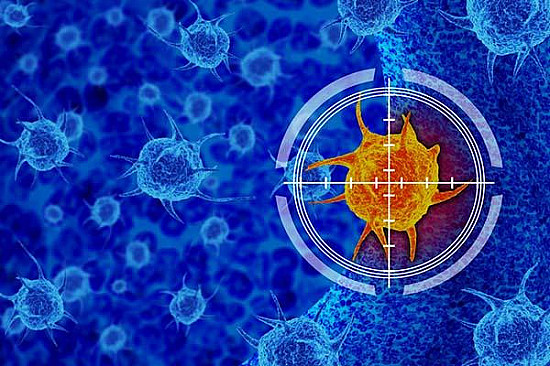
By fighting off pathogens, the specialized cells of our immune systems help to keep us healthy and free of infectious diseases. Immunotherapies teach those same cells to recognize and destroy cancer. The drugs have been remarkably successful in treating melanoma — a type of skin cancer — as well as cancers of the lung, bladder, kidneys, and blood. Just one form of immunotherapy, a type of cancer vaccine, is currently approved for prostate cancer.
A new approach
Researchers at City of Hope Hospital in Duarte, California, are now reporting promising results with a different method called CAR-T cell therapy. It involves engineering immune cells called T cells after they’ve been obtained from a patient’s own body. The engineered cells are studded with proteins called chimeric antigen receptors (CARs) that bind to specific molecular targets (antigens) on cancer cells.
Upon being returned to the body, the engineered CAR-T cells kill tumor cells expressing their target antigen. CAR-T cell treatments are currently approved only for blood cancers. The treatments can be highly effective against these diseases, but they also have challenging side effects, including in some cases a widespread inflammatory reaction known as cytokine release syndrome.
During their investigation, the researchers engineered CAR-T cells that bind specifically to a protein called prostate stem cell antigen (PSCA). PSCA is preferentially expressed at high levels in prostate tumors, particularly during advanced disease stages and after the cancer has spread to the bones.
The investigators treated 14 patients, all of them diagnosed with metastatic prostate cancer that was no longer responding to hormonal therapy. Each patient was treated with 100 million CAR-T cells either with or without an additional treatment used to prevent a patient’s other T cells from interfering in the anticancer attack. This other treatment is called lymphodepletion.
What the study showed
Results were encouraging: In four patients, levels of prostate-specific antigen (PSA) — which drop when prostate tumors shrink — declined by 30% or more. One patient had a greater than 90% decline in PSA during the 28-day monitoring period, as well as shrinking cancer in his bones and soft tissue. That positive response lasted for eight months. Five patients had mild cytokine release syndrome that was effectively treated, and two patients experienced cystitis, which is irritation of the bladder.
Unfortunately, the CAR-T cells did not persist at high levels beyond the monitoring period, and that could limit the treatment’s effectiveness. The team plans to explore strategies to extend CAR-T-benefits in upcoming research.
Prostate cancer tends to be immunologically “cold,” meaning that it’s well hidden from the immune system. Most immunotherapies have therefore met with limited success against prostate cancer. But CAR-T offers a more powerful approach to overcoming tumor defenses, according to Dr. Tanya Dorff, a medical oncologist at City of Hope and the study’s first author.
Observations
Dr. David Einstein, a medical oncologist at Beth Israel Deaconess Medical Center and assistant professor at Harvard Medical School, points out that lymphodepletion can leave some patients vulnerable to infections. Given the added risk of cytokine release syndrome, CAR-T cell therapy will likely be suitable “only for a selected group of patients,” he says.
“This is a different and more intensive treatment experience than hormonal therapy and even chemotherapy,” he says. Still, he says, the results suggest that CAR-T therapy may emerge as an additional immunotherapeutic option for men with prostate cancer.
“This research is very encouraging,” says Dr. Marc Garnick, the Gorman Brothers Professor of Medicine at Harvard Medical School and Beth Israel Deaconess Medical Center, and editor in chief of the Harvard Medical School Guide to Prostate Diseases. “It represents the beginning of a completely novel method to eliminate cancer cells which have spread beyond the prostate gland, independent of the traditional methods for prostate cancer elimination that include hormone therapy, chemotherapy, and various methods of radiation therapy.
“Because the CAR-T program uses a novel and exciting way of eliminating cancer cells, more work will be needed to help understand both the mechanism by which this occurs, and as Dr. Einstein emphasizes, methods to lessen the side effects associated with this new technology.”
